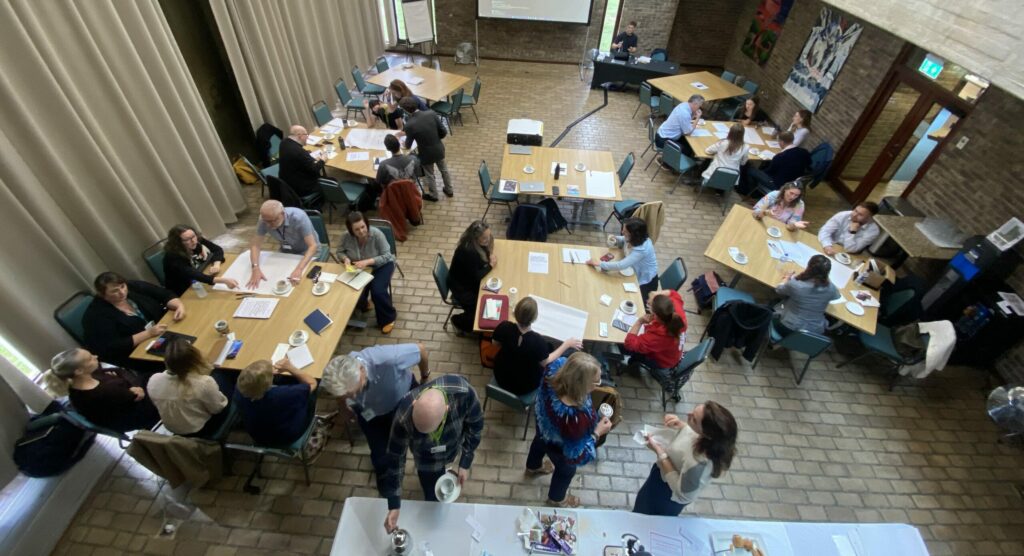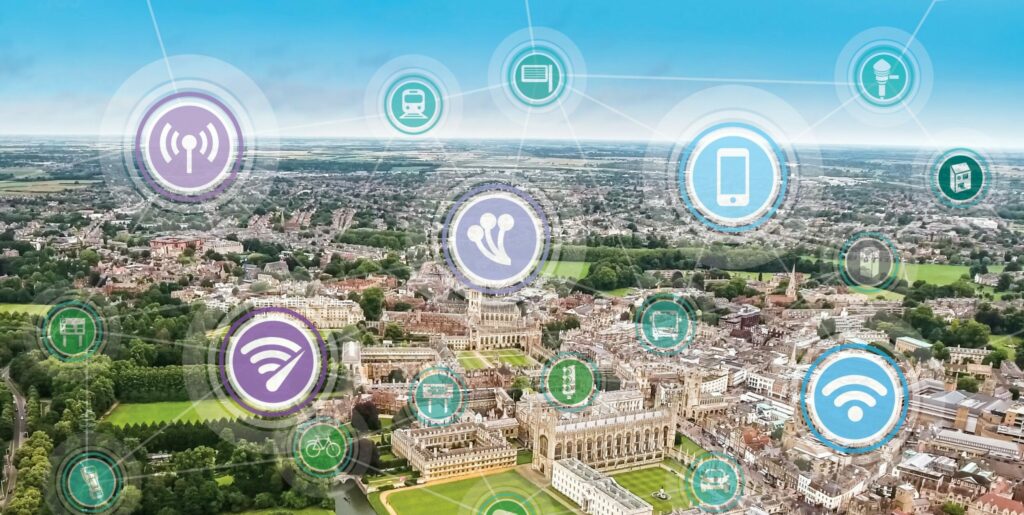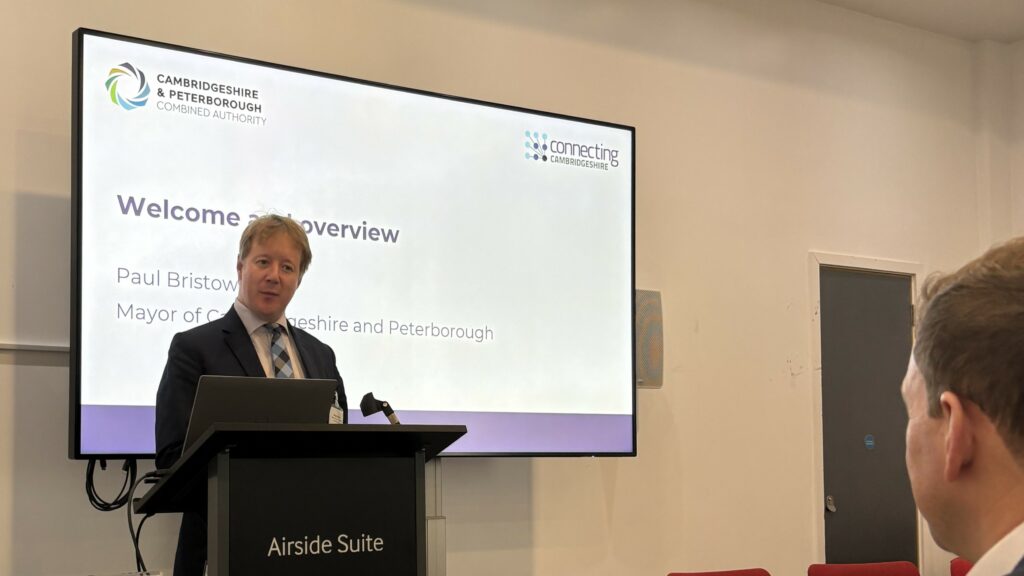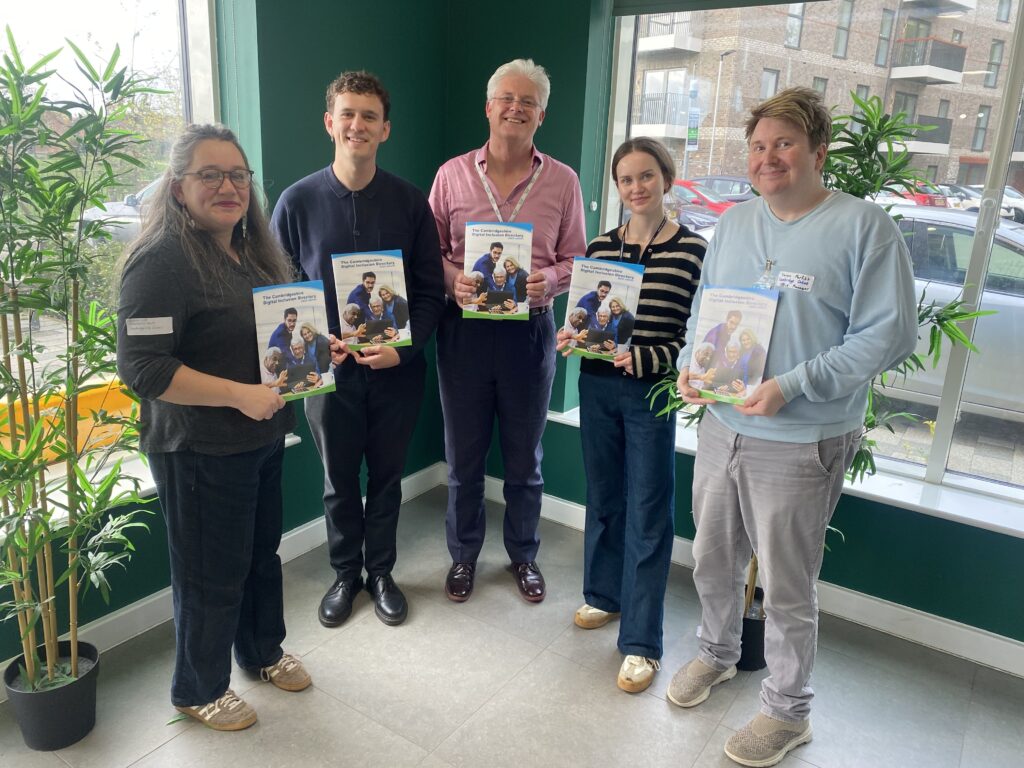Marking End Digital Poverty Day 2025 with a Cambridgeshire Digital Partnership in-person event

This is a revised version of a blog post that first appeared on the Cambridgeshire Digital Partnership website on 18 September 2025
Connecting Cambridgeshire was proud to co-host an inspiring in-person event with the Cambridgeshire Digital Partnership (CDP) to mark End Digital Poverty Day 2025. Held in the grounds of Churchill College on Thursday 11 September, the event brought together passionate voices and changemakers working to tackle digital poverty and promote digital inclusion across the county.
The morning began with a warm welcome from Connecting Cambridgeshire’s Digital Inclusion Lead, Will Plant, and Sarah Marsh, Programme Director and Head of Digital Connectivity, alongside Sally Page, Deputy CEO at Cambridge Council for Voluntary Service (CCVS). Together, they introduced the work of Connecting Cambridgeshire and the Cambridgeshire Digital Partnership, setting the tone for a day of collaboration and action.
Spotlight on National and Local Action
We were delighted to welcome a fantastic line-up of guest speakers:
- Christine Liang, Head of the Digital Inclusion Programme, and Tash Crapnell, Head of Local Delivery and Confidence at the Department for Science, Innovation and Technology (DSIT)
- Sue Gowling, Founder of Sustainable Tech4Good
- James Lewis, Community Connector for Places for People and Trustee of The Angels Foundation UK
Christine and Tash shared powerful insights from DSIT’s Digital Inclusion & Skills Unit, highlighting the scale of digital exclusion in the UK and outlining the government’s Digital Inclusion Action Plan. They also updated attendees on initiatives such as the Digital Inclusion Innovation Fund, the IT Reuse for Good Charter, and partnerships with tech companies to improve access to skills and devices.
Sue Gowling showcased the impact of Sustainable Tech4Good, which has been tackling digital inequality and e-waste since 2020. In Cambridgeshire alone, they’ve helped over 1,500 people access devices, saved more than 2,200 kg of e-waste from landfill, and supported 50 local charities.
James Lewis brought the issue closer to home, sharing sobering statistics about digital exclusion in Cambridgeshire. Where around 10,000 households are digitally excluded, and 30% of affordable housing residents lack home broadband. His call to embed digital support into frontline services was a powerful reminder that digital inclusion is not a luxury, it’s a lifeline.
Roundtable Reflections
The event also featured collaborative roundtable discussions. Attendees explored how we can strengthen digital inclusion efforts across Cambridgeshire, with key themes including:
- The importance of in-person, needs-led support
- Building sustainable models through volunteering, intergenerational work, and business partnerships
- Improving knowledge sharing and mapping local efforts through a ‘living directory’
- Reframing language and outreach to better engage digitally excluded communities
- Recognising that digital exclusion is dynamic and requires ongoing support
It was fantastic to see so many meaningful conversations and connections forming throughout the morning.
Looking Ahead
We’re incredibly grateful to all our speakers, partners, and attendees for making this event such a success. Together, we’re building a more connected, inclusive, and empowered Cambridgeshire.
To stay updated on our digital inclusion work, check out our Help to get online pages, or follow us on X and LinkedIn.




















Related Posts

Plan to boost broadband speeds and mobile coverage gets backing

Mayor hosts industry leaders to drive better mobile connectivity in Cambridgeshire and Peterborough

